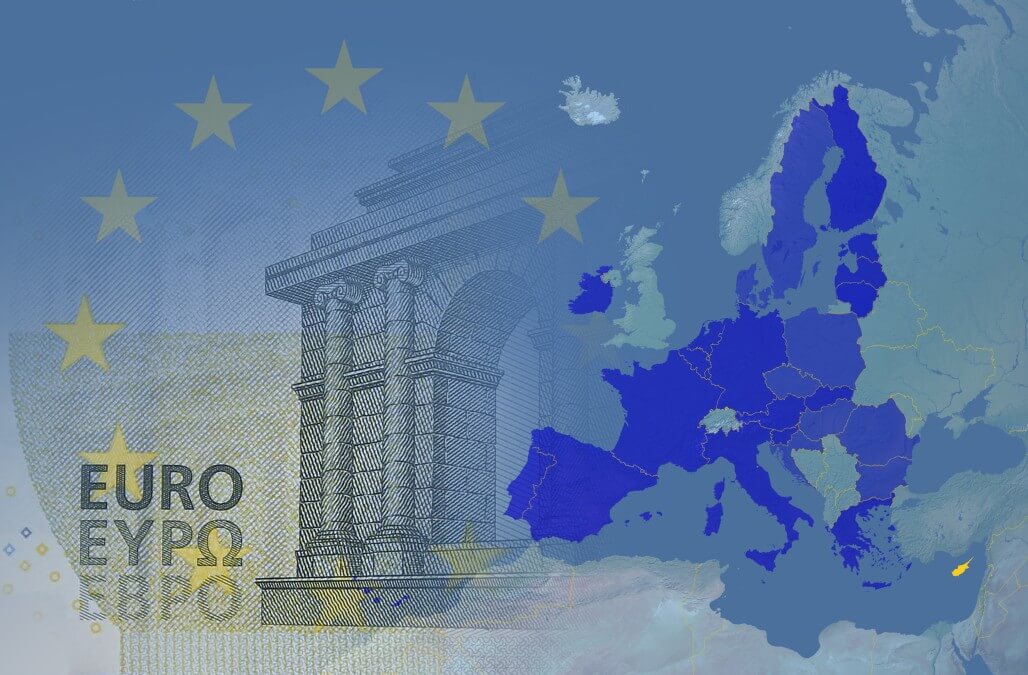The eurozone economy saw minimal growth in the year’s second quarter, falling short of earlier projections due to stagnant domestic consumption and weakened exports. Official data from the European Union’s statistics agency, Eurostat, revealed that the bloc’s gross domestic product (GDP) only expanded by 0.1% from April to June. Initial estimates had indicated a growth of 0.3%, and economists surveyed had expected it to remain at that level.
In comparison to the same period the previous year, the economy grew by 0.5% in the second quarter, slightly lower than the earlier estimate of 0.6%. In the first quarter, GDP also grew by 0.1%, according to a revised figure indicating stagnation.
Household consumption showed no growth in this period, contributing very little to the overall GDP growth in the euro area. That suggests high interest rates and inflation continue to strain consumers’ budgets.
Meanwhile, exports declined compared to the previous year, following a period of stagnation in the previous quarter, which was the largest factor pulling down the overall growth.
Eurozone performance affected weakened economies
The economic performance of the 20-member bloc was affected by the stagnant performance of Germany, a major economic powerhouse. Traditionally, robust exports and industrial output in Germany have weakened. On the other hand, France and Spain exceeded expectations in this quarter, while Italy’s economy faced a slight dip from the previous month.
Economists warn of a potential stagnation or deterioration in the eurozone economy after its modest growth in the second quarter. Recent downbeat data from purchasing managers’ surveys suggest that output might contract by 0.5% in July-September, as Pantheon Macroeconomics noted.
Looking at the entire year, the European Central Bank anticipates the economy to expand by 0.9% compared to the previous year. However, it’s worth noting that this forecast may be adjusted downward when the bank issues its updated macro estimates next week.
UK ahead of EU
In the second quarter, the UK’s growth outpaced the EU’s, largely due to declining exports, which nearly stalled growth in the bloc. Revised GDP figures for the EU from April to June revealed a growth of just 0.1%, down from the previously estimated 0.3%. A slight increase in government expenditure partially offset the decline in exports by 0.7% in the bloc.
Contrastingly, recent data indicated that the UK experienced a 0.2% growth in the same period, largely attributed to a robust performance in the production sector.
The sluggish growth in the bloc was primarily attributed to underperformance in Italy, which contracted by 0.4%, and Germany, which experienced stagnation. Both countries have grappled with slowdowns in their manufacturing sectors. Additionally, downward revisions to the Irish GDP played a role.
Andrew Kenningham, Chief Europe Economist at Capital Economics, highlighted that the downward revision to the eurozone’s second-quarter GDP data means the economy is now thought to have been flat-lined since last year’s fourth quarter.
Recent data releases have demonstrated decreased consumer and business confidence in the eurozone. Additionally, indicators of private sector activity have started to show negative trends. Kenningham suggested that the eurozone may slide into recession in the second half of the year, which poses a challenge for the European Central Bank, which is currently deliberating on its latest interest rate decision. While markets are anticipating a 25 basis point hike when the central bank convenes next week, the data may compel the ECB to exercise caution in further rate hikes.





